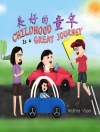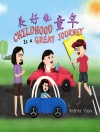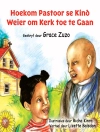Emotional ecology is the art of sustainably managing our emotional world so that our affective energy serves us to grow as individuals, enhance the quality of our personal relationships, and improve the world we live in.
Emotional ecology offers a new, creative, and revolutionary approach in emotional education that simultaneously addresses emotional and environmental educational aspects, aiming to shape a new model of person: the emotionally ecological person.
In this volume, we will learn to fly, to love ourselves more and better, to differentiate between self-protection and aggression, to discover the importance of maintaining an appropriate distance to avoid ‘pricking ourselves, ‘ and to prepare a jam of good moments that will help us in difficult times. We will also learn to choose our company wisely and surround ourselves with people who help us grow in harmony and balance instead of hindering our path. Are you ready to drink from clean, renewable, and sustainable emotional sources?
Содержание
Learning to Fly
What gives us wings? What helps us fly, and which things are so heavy that they keep us on the ground? Flying means acquiring the ability to live our own lives and be the best we can be: creative, autonomous, peaceful, and affectionate. Do you want to become a CAPA?
Energies
When we do something, we can move ourselves with a source of contaminated energy or clean, renewable, and sustainable energy. The first option can make us feel tired, disheartened, frustrated, sad, or unsatisfied, while the second will make us feel cheerful, motivated, calm, and happy. Which energy would you prefer?
Hedgehogs and Other Prickly Creatures
Some animals and plants have developed natural protection, such as prickles, to guard against external aggression and avoid being hurt. As humans we also have resources that can serve to both protect and insulate us. Do you have prickles?
I Am My Relationships
There are many different types of relationships within the plant and animal kingdoms: parasitical, symbiotic, cooperative, competitive, etc. In our everyday lives we also construct these types of relationships with the people around us. What kinds of relationships do you have?
Sowing Happiness
What would you say to a gardener who planted potatoes and expected orchids to grow? That’s ridiculous, right? And yet, sometimes we hope that happiness in life will grow without planting any seeds, without any work. Happiness is a delicate plant that requires constant care. Would you like to learn more?
Об авторе
Maria Mercè Conangla and Jaume Soler are psychologists and the founders of the Fundació Àmbit institute for personal development in Barcelona (Spain), a non-profit organization that has specialized in providing training, counseling, and resources for personal growth, education, and emotional management since 1996. Two of its innovative projects are the ÀMBITuniversit@rtdelviure program and its Master's in Emotional Ecology, which the authors co-direct. Their research and work in the context of humanist psychology and emotional management led them to develop a new concept of emotional ecology in 2002, which they have since advocated in eleven co-authored books. Both are lecturers and collaborating professors in a variety of master's degrees linked to emotional management, well-being, and personal growth at the University of Barcelona.












